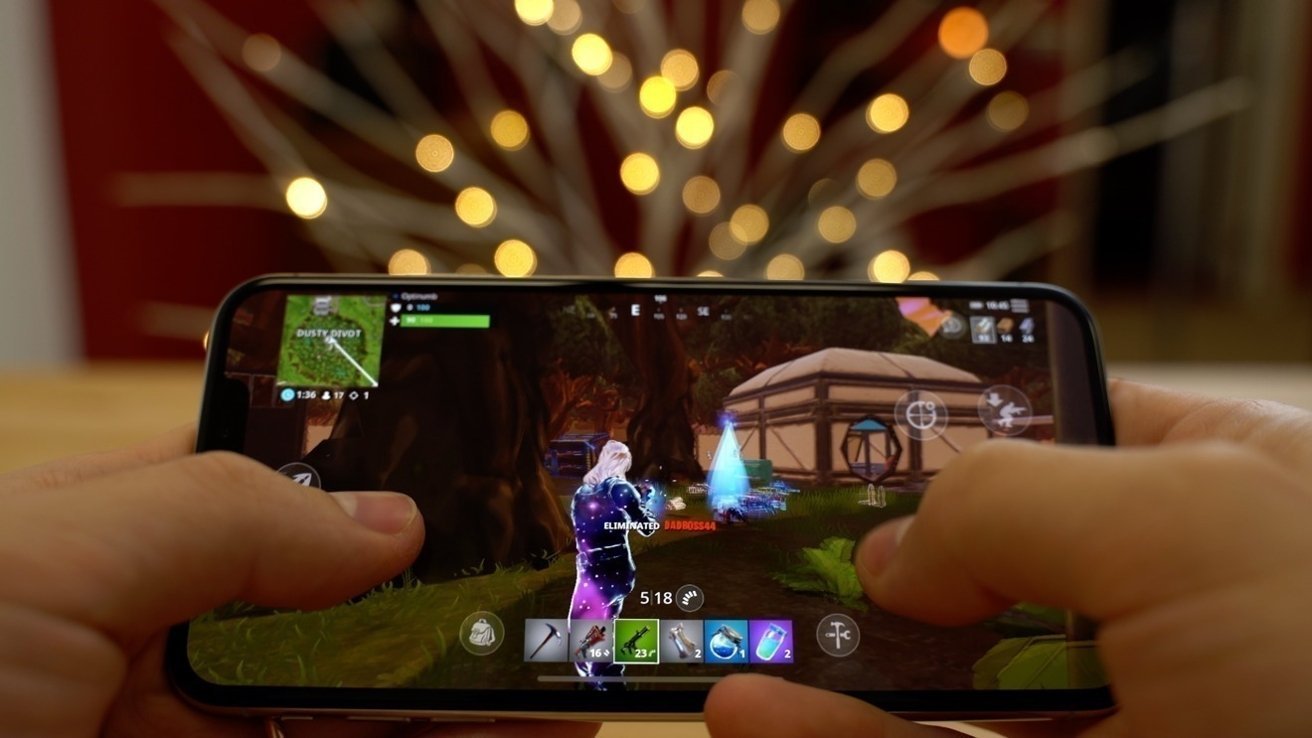Apple petitions Supreme Court to over-rule 'Fortnite' lawsuit
Apple is taking its battle with Epic Games to the U.S. Supreme Court with the intention to reverse a ruling from the Court of Appeals that affects the App Store policies.

The long-running lawsuit between the Fortnite game maker and the App Store owner is close to reaching the highest court in the United States. In this case, it is because Apple wants to revisit an antitrust appeal that didn't go entirely the company's way.
In a filing to the Supreme Court on Monday, Apple's legal team motions for a reconsideration of an April ruling by the U.S. Ninth Circuit Court of Appeals on the matter. While in April the court upheld most of a previous decision in the case, it rejected attempts by Epic and Apple to revisit the decision on Friday.
With the Ninth Court refusing to continue, Reuters reports Apple is moving the matter further up the judicial food chain to the Supreme Court.
Apple's motion claims that the appeals court reached too far by issuing a nationwide injunction against Apple over alleged violations of California state unfair competition law. The petition states it raises "far-reaching and important" questions about the power of judges in issuing broad injunctions.
During April's appeal, the Ninth Circuit Court of Appeals agreed with a lower court's 2021 decision rejecting claims from Epic that the App Store violated federal laws, including those relating to forbidding third-party app stores on its platforms. However, the court also upheld a ruling on California state law claims against Apple.
For developers, this largely covers policies such as anti-steering provisions that prevented developers from pointing customers in other directions than the App Store's In-App Payments system.
While Apple has made its motion to the Supreme Court, Epic Games has yet to request a hearing of its own appeal.
A lengthy legal battle
The affair is a continuation of a lengthy legal battle between the Fortnite creator and the iPhone maker.
Epic Games sued Apple in 2020 after Apple stopped the game-maker from bypassing the App Store payment system in which Apple collects a 30% fee from developers.
Not long after that, Apple terminated Epic's developer accounts, effectively cutting it off from iOS and Mac developer tools.
The case has had numerous decisions and appeals and remains ongoing.
In the first legal response, Apple likened Epic's behavior to being similar to that of a shoplifter in avoiding the 30% fee. Epic responded by accusing Apple of filing to acknowledge the multiple contracts between the two companies, as well as insistence that Apple hadn't proven it would be "significantly harmed" by Epic's actions.
Apple has repeatedly stated that in order to safeguard consumers against scammers, hackers, malware, and spyware, it is necessary to rigorously monitor the programs that run on its widely used phones.
That August 2020 ruling had US District Judge Yvonne Gonzalez Rogers declare Epic couldn't demonstrate irreparable harm from Apple's ban of Fortnite, and that it was a situation of Epic's own making. However, Apple did choose to "act severely."
The tit-for-tat filings eventually led to a three-week trial in 2021, which led to a lot of aired dirty laundry, including internal Apple emails and details of the App Store workings.
In the September 2021 publication of her ruling, Judge Yvonne Gonzalez Rogers largely handed Apple a victory in court. Chiefly for Apple it was a confirmation that Apple wasn't a monopoly, and that Epic wasn't able to demonstrate Apple was engaging in monopolistic behavior.
Though Apple was found to enjoy "considerable market share" and "extraordinarily high profit margins," this didn't demonstrate antitrust conduct. "The Court does not find that it is impossible; only that Epic Games failed in its burden to demonstrate Apple is an illegal monopolist," the ruling states.
Apple also prevailed in arguments that Epic breached its contract clauses, leading to damages of 30% of the $12 million it earned from its brief direct payments system's activity.
The ruling did go against Apple when it came to anti-steering, with an injunction issued effectively forcing Apple to allow developers to say other payment methods were possible.
Epic quickly filed an appeal to the U.S. Court of Appeals for the Ninth Circuit, and was later followed by Apple.
One January 22 appeal filing had Epic say Judge Rogers "erred" in her antitrust rulings.
Eventually, in August 2022, the U.S. Court of Appeals said it would hear from both Apple and Epic in October 2022. Each side would have just 20 minutes to make their case to the court, though the Department of Justice was also allowed to present for 10 minutes to argue Epic's side.
Months later, on April 24, 2023, the Appeals Court issued its verdict.
Read on AppleInsider

Comments